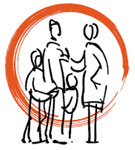 WASHINGTON (CNS) — Christian leaders, including representatives of the U.S. Conference of Catholic Bishops, called on President Barack Obama and congressional leaders of both parties to end the fiscal brinksmanship and find a budget solution that protects the poorest Americans.
WASHINGTON (CNS) — Christian leaders, including representatives of the U.S. Conference of Catholic Bishops, called on President Barack Obama and congressional leaders of both parties to end the fiscal brinksmanship and find a budget solution that protects the poorest Americans.
In a Feb. 25 letter, the religious leaders urged the political leaders to “frame the budget debate in terms of moral choices that are understandable to the American people.”
“We must weigh the benefits of tax credits for low-income people and tax breaks for high-income people; of nutrition assistance to low-income families and subsidies to agricultural businesses,” the letter said. “Within the category of ‘defense,’ there is a difference between legitimate national security and unnecessary spending.
[hotblock]
“Congress can and must develop a balanced and thoughtful path forward that protects the most vulnerable and preserves economic opportunity,” nearly 100 faith leaders wrote.
Bishop Stephen E. Blaire of Stockton, Calif., chairman of the U.S. bishops’ Committee on Domestic Justice and Human Development, Bishop Richard E. Pates of Des Moines, Iowa, chairman of the bishops’ Committee on International Justice and Peace, and Auxiliary Bishop Denis J. Madden of Baltimore, chairman of the bishops’ Committee on Ecumenical and Interreligious Affairs, were among those urging political leaders to maintain a “circle of protection” around programs focused on hungry and poor people in the U.S. and around the world.
“Congress can and must develop a balanced and thoughtful path forward that protects the most vulnerable and preserves economic opportunity,” nearly 100 faith leaders including three Catholic bishops and other Catholic leaders wrote this week in a letter.
The letter comes as $1.2 trillion in cuts in government spending on domestic and military programs over the next decade were set to kick in March 1.
Among programs affected are loan guarantees to small business, Head Start, food inspections, law enforcement, scientific research, mental health, drug approvals, workplace safety and military contracting.
“Our long-term fiscal challenges will not be solved by increasing the burden on those who Jesus called the ‘least of these,'” the letter explained in affirming the government’s responsibility to poor people.
“Moving from one crisis to another has slowed economic recovery and has kept Congress from finding a sound, moral path to fiscal sustainability,” the letter said. “Other important issues go unaddressed, all the increasing cynicism about our political process. Congress’ actions should not provoke serious economic setback or push more people into poverty.”
While commending the president and Congress for taking steps to reduce the country’s budget deficit by an estimated $2 trillion earlier this year, the leaders called for steps that lead to further cost savings and additional revenue “that don’t increase poverty.”
Specifically, the letter explained that Medicare reform could occur without harming people who depend on the health care coverage it provides and that ideas to find savings in Medicaid should avoid cutting benefits and restricting eligibility requirements or shifting costs to states.
The leaders also indicated that they continued to pray for political leaders to engage in respectful debate so that their efforts would advance the common good.
The letter comes on the heels of more than 100 events in 23 states in mid-February calling for limited cuts in spending on social services and closing tax loopholes to raise federal revenues.
Other Catholics adding their names to the letter include Sister Simone Campbell, a Sister of Social Service, executive director, the social justice lobby Network; Patrick Carolan, executive director, Franciscan Action Network; Franciscan Sister Florence Deacon, president, Leadership Conference of Women Religious; James F. Ennis, executive director, National Catholic Rural Life Conference; Sheila K. Gilbert, president, National Council of the Society of St. Vincent de Paul; Sister Carol Keehan, a Daughter of Charity, president and CEO, Catholic Health Association; Sister Gayle Lwanga, Sisters of Our Lady of Charity of the Good Shepherd, National Advocacy Center; Father Ronald J. Rooney, president, Catholic Association of Diocesan Ecumenical and Interreligious Officers; Stephen F. Schneck, director, Institute for Policy Research and Catholic Studies, The Catholic University of America; Jesuit Father H. Smolich, president, Jesuit Conference; Father Larry Snyder, president, Catholic Charities USA; and Carolyn Woo, president, Catholic Relief Services.
Other religious leaders signing the letter included the leaders of the National Baptist Convention, National Association of Evangelicals, Evangelical Lutheran Church in America and National Council of Churches of Christ as well as Bread for the World, Jubilee USA Network, National Council of Churches and World Relief.
PREVIOUS: Archbishop backs end to death penalty, says it offers ‘tragic illusion’
NEXT: Cardinal Dolan will go to White House to discuss mutual concerns with Obama


Share this story